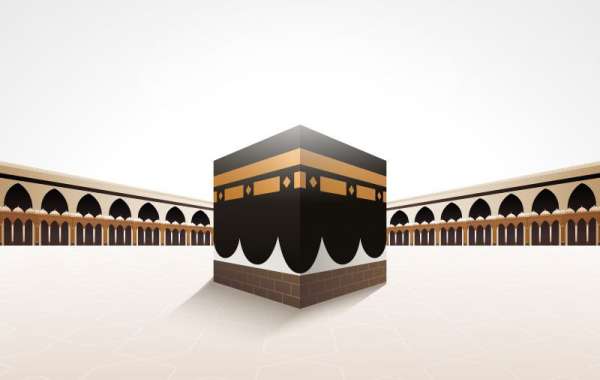The journey of Umrah is one of the most beautiful and spiritually rewarding experiences a Muslim can undertake. It is a pilgrimage that cleanses the soul and brings one closer to Allah. However, for those who travel during the hot summer months, this sacred journey comes with a unique set of challenges, namely the intense heat. The soaring temperatures in Mecca and Madinah can be physically demanding, making it difficult to focus on your prayers and rituals. This guide is designed to help you prepare for and manage the heat, ensuring your focus remains on the spiritual beauty of your pilgrimage rather than the physical discomfort. By planning ahead and taking simple precautions, you can make your summer Umrah a safe, healthy, and deeply meaningful experience.
Before You Go: Preparing for the Heat
Preparation is the first and most important step to a comfortable summer Umrah. What you pack and how you prepare your body can make a world of difference. First, let’s talk about clothing. The key is to choose materials and colors that will help you stay cool. Opt for light-colored, loose-fitting, and breathable fabrics like cotton or linen. Light colors reflect the sun's rays, while loose clothing allows for better air circulation. The white Ihram for men is naturally a great choice, but women should also consider light-colored abayas or jilbabs.
Next, make sure your packing list includes some essential items to combat the heat. A small, battery-operated personal fan can be a lifesaver, especially during moments of waiting or prayer. A small spray bottle filled with water can also provide instant relief by spritzing your face and neck. A wide-brimmed hat or a head covering that provides good shade can protect you from direct sunlight. It's a good idea to consider your entire packing list with the heat in mind. For those looking for comprehensive plans, a good starting point is to explore different umrah in ramadan packages as they often provide guidance on what to expect.
Finally, a pre-trip health check-up is highly recommended. For those with existing health conditions, such as high blood pressure or diabetes, it is crucial to consult your doctor before you travel. Make sure you are in good health for the physical demands of the journey. Hydrating your body and eating a healthy diet in the weeks leading up to your trip will also help prepare you for the climate change.
On the Ground: Managing Heat During the Pilgrimage
Once you arrive in Saudi Arabia, smart planning and consistent habits are your best defense against the heat. Strategic timing is a key tool in your arsenal. The heat is most intense during the midday hours. Whenever possible, schedule your major rituals like Tawaf and Sa'i for the cooler times of the day, such as early in the morning after Fajr prayer or later in the evening after Asr prayer. The temperatures are significantly lower at these times, and the crowds may also be a bit smaller, making the experience much more pleasant.
Consistent hydration is absolutely non-negotiable. It's very easy to become dehydrated in the heat, especially when you are so focused on your worship that you forget to drink water. Make a conscious effort to drink water regularly, even when you don’t feel thirsty. You can carry a reusable water bottle with you and refill it frequently.
Sun protection is another vital step. While inside the Harams, you are mostly protected, but when you are outdoors, the sun is very strong. Using a good-quality sunscreen with a high SPF rating can protect your skin from sunburn. Wearing sunglasses is also helpful to protect your eyes from the bright sunlight. This is especially important for anyone trying to figure out how to perform umrah during ramadan when the rituals might be spread out over the day and night in a different rhythm.
Lastly, don't underestimate the power of rest. The pilgrimage is a marathon, not a sprint. Take frequent breaks in air-conditioned spaces to cool down and recover. Many hotels and shopping centers around the Harams have cool, comfortable lobbies where you can sit for a while. Taking these breaks will help you to regain your energy and ensure you have the strength to complete all your rituals.
Within the Harams: Tips for Masjid al-Haram and Masjid an-Nabawi
The two holy mosques, Masjid al-Haram in Mecca and Masjid an-Nabawi in Madinah, have many features that help pilgrims manage the heat. The availability of cold Zamzam water is one of the greatest blessings. Located throughout both mosques, Zamzam water is not only spiritually beneficial but also incredibly refreshing and hydrating. Make sure to drink from the Zamzam dispensers often to quench your thirst and revitalize your body.
When performing Tawaf, you may notice that some areas of the marble flooring are much cooler than others. This is because the white marble reflects the heat. Try to walk on the white marble as much as possible, as the darker stone or carpeting can get extremely hot. Similarly, when praying, try to find a spot in a shaded area, under one of the umbrellas in the courtyards, or even better, inside the air-conditioned halls of the mosques. The interior of the mosques is kept at a comfortable temperature, providing a perfect escape from the outdoor heat.
Recognizing and Responding to Heat-Related Issues
Despite your best efforts, it's possible to experience heat-related issues. It’s important to know the signs so you can act quickly. The first sign is often dehydration, with symptoms including dizziness, dry mouth, headache, and fatigue. If you feel any of these, sit down, find a cool spot, and drink water immediately.
More serious conditions are heat exhaustion and heatstroke. Heat exhaustion can be identified by heavy sweating, a weak pulse, and nausea. If you or someone you are with shows these signs, move them to a cool place, have them lie down, and give them sips of water. Heatstroke is an emergency and is identified by a very high body temperature, a lack of sweating, and confusion. If you suspect heatstroke, seek medical attention immediately. There are medical facilities and first aid points conveniently located within and around both of the Holy Mosques to assist you.
A Final Thought
Performing Umrah during the summer is a true test of patience and endurance, but with the right preparation and a mindful approach, it is absolutely achievable. Remember that Allah rewards those who persevere in their worship. By following these tips—focusing on hydration, smart timing, and proper rest—you can ensure your body is strong enough to allow your heart to fully connect with the spiritual journey. May your Umrah be accepted and may your journey be filled with ease and immense blessings.







